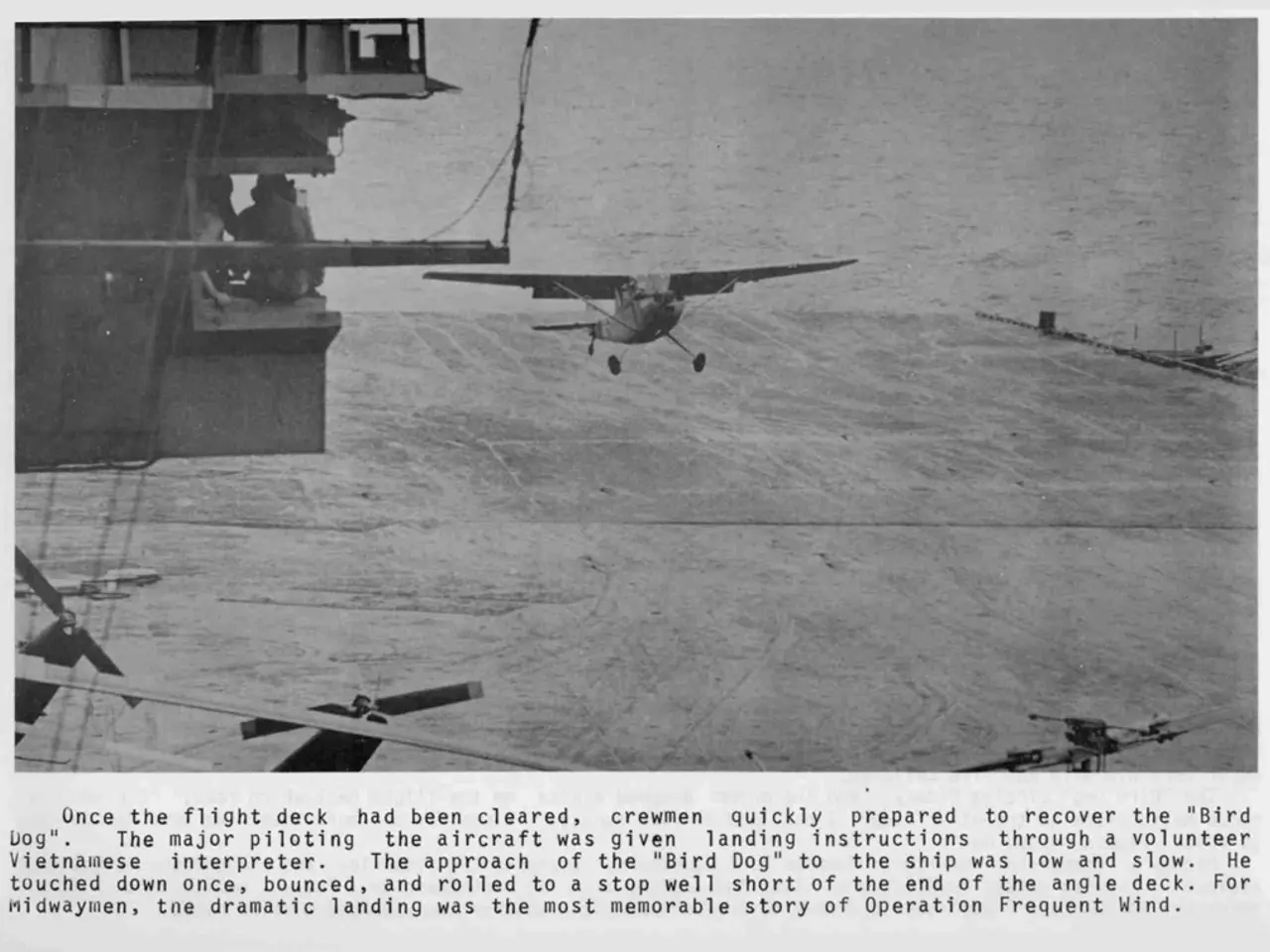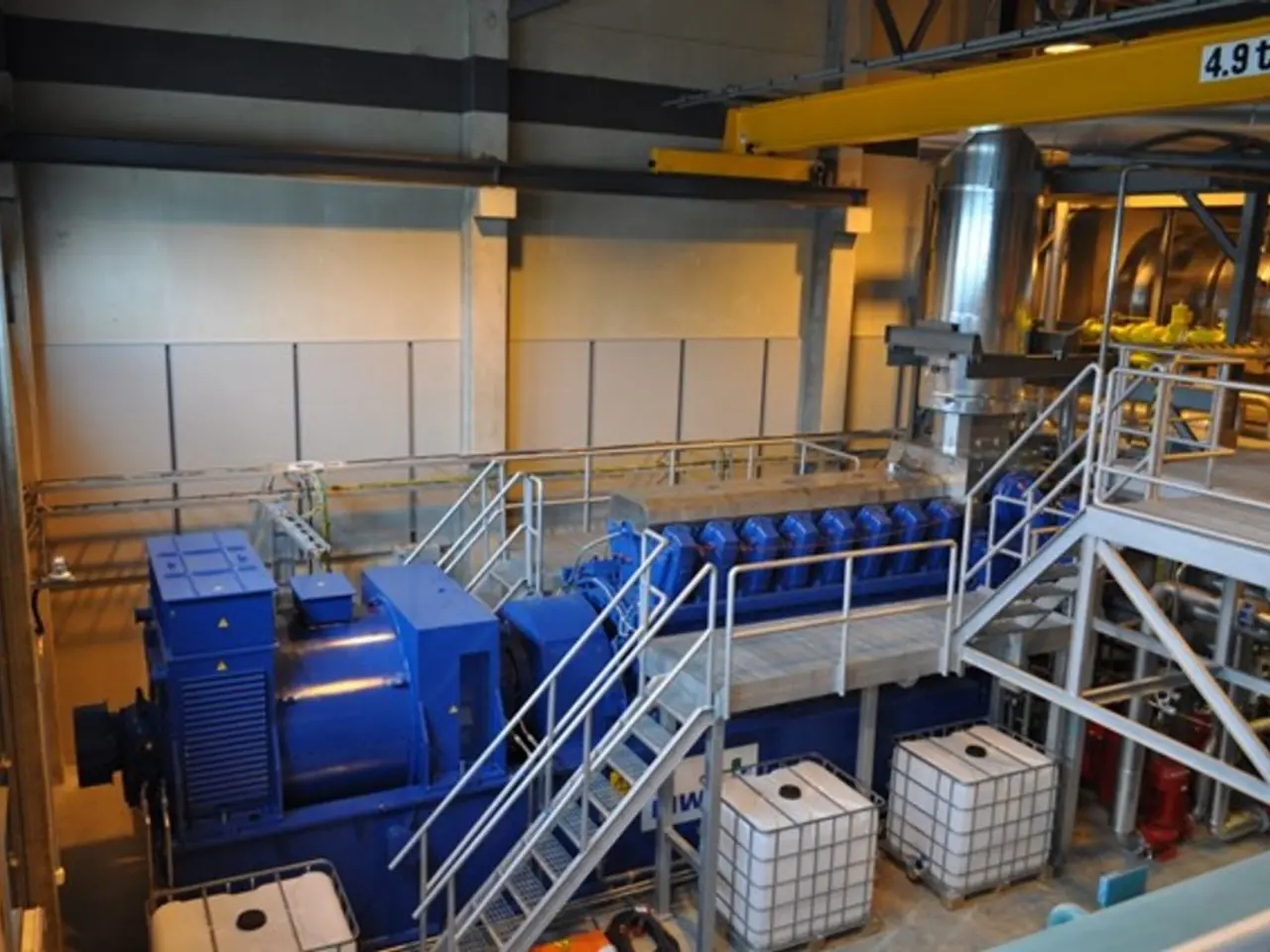Military forces in Israel declare successful capture of a missile originating from Yemen.
In the ongoing tensions between Israel and the Iran-backed Houthi rebels in Yemen, the latest incident occurred on Friday when a missile was reportedly launched towards Ben Gurion Airport near Tel Aviv. The airport, Israel's busiest, was targeted by a hypersonic ballistic missile, dubbed "Palestina 2," according to claims made by the Houthis.
The Israeli army swiftly intercepted the missile, using its advanced missile defense systems. Notably, the Arrow 3 interceptor successfully destroyed a similar missile over the Mediterranean in a previous engagement.
This incident marks one of several missile attacks launched by the Houthis towards Israeli territory since March 2025. The Houthis, who control the capital Sanaa and other parts of Yemen, have shown their support for Palestinians amid the ongoing Gaza-Israel conflict.
The Houthis' arsenal includes a diverse range of surface-to-surface missiles, cruise missiles, UAVs, loitering munitions, and naval drones, many of which are believed to be of Iranian, Russian, or Chinese origin. Notable missiles capable of reaching Israel include the Toufan, Soumar family cruise missiles, and Quds-2, as well as UAVs like the Samad-3, Samad-4, and Wa’id drones.
Israel's response to these missile attacks has been direct, with military action against Houthi infrastructure. A notable example is the naval strike on Yemen’s Hudaydah Port in June 2025, executed using advanced Gabriel 5 missiles from the INS Magen corvette. The international response has also involved regional disruptions, including impacts on Red Sea shipping.
The Houthis have retaliated against Israel following its naval strike on Hudaydah Port, with long-range missile attacks. The port of Hodeida was previously targeted by Israel on July 7.
It is important to note that Yemen has been at war since 2014, making it the poorest country in the Arab Peninsula. The Houthis have been regularly launching missiles against Israel since the start of the war in Gaza on October 7, 2023. Israel, in response, has bombed Houthi-controlled infrastructure, notably the port of Hodeida.
The regional tensions have increased due to the Houthis' missile attacks supporting Palestinians, with broader geopolitical implications. The Houthis are part of the anti-Israel alliance created by Tehran, which includes other groups such as Hezbollah in Lebanon and Palestinian Hamas.
References:
[1] The Jerusalem Post. (2023). Israel intercepts Houthi missile fired at Ben Gurion Airport. Retrieved from https://www.jpost.com/middle-east/article-716076
[2] Al Jazeera. (2023). Houthis claim attack on Ben Gurion Airport with hypersonic missile. Retrieved from https://www.aljazeera.com/news/2023/10/15/houthis-claim-attack-on-ben-gurion-airport-with-hypersonic-missile
[3] The Guardian. (2023). Israel strikes Yemeni port in retaliation for Houthi attacks on ships. Retrieved from https://www.theguardian.com/world/2023/jun/10/israel-strikes-yemeni-port-in-retaliation-for-houthi-attacks-on-ships
The ongoing political tension between Israel and the Iran-backed Houthi rebels in Yemen has escalated further, with the Houthis launching a missile towards Israel's busiest airport, Ben Gurion Airport, on various occasions, such as the recent hypersonic ballistic missile, Palestina 2, on Friday. General news reports have indicated that Israel's response to these conflicts has been direct, involving military action against Houthi infrastructure, including the naval strike on Yemen's Hudaydah Port in June, utilizing advanced Gabriel 5 missiles. War and conflicts in the region, like the ongoing Yemeni war, are intertwined with the broader geopolitical implications, with the Houthis being part of the anti-Israel alliance created by Tehran, alongside groups such as Hezbollah in Lebanon and Palestinian Hamas.







